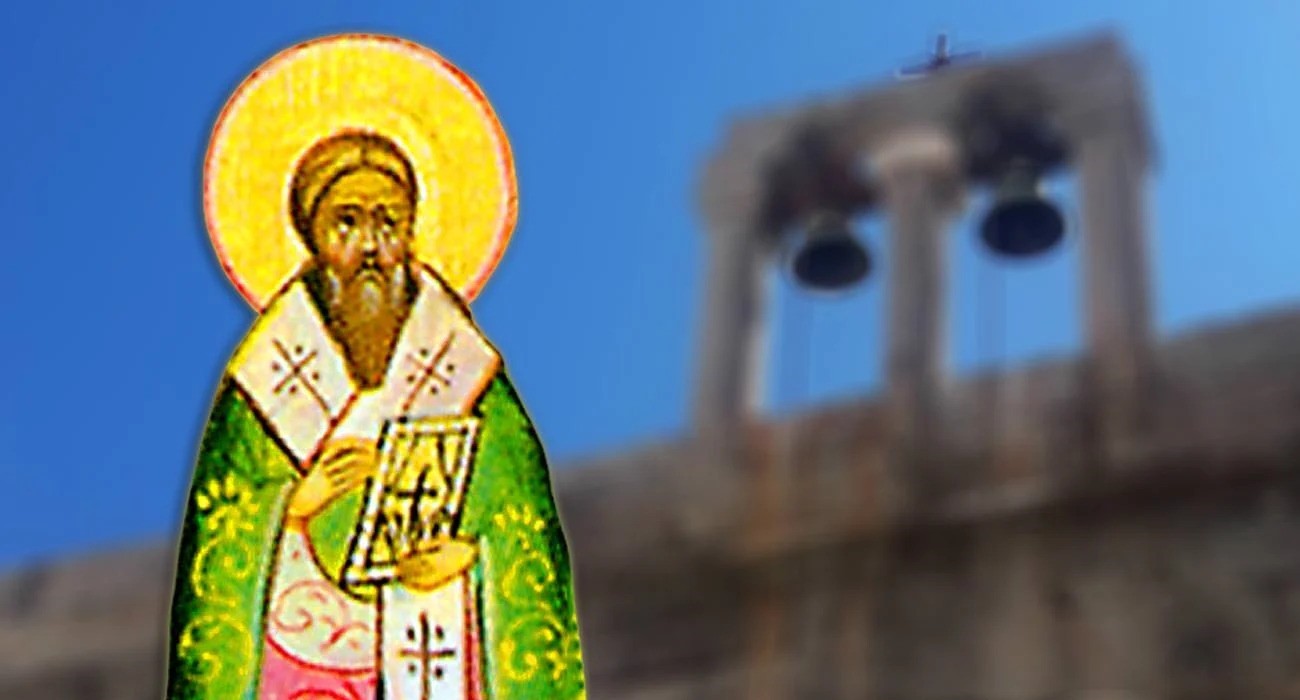Saint Tryphon, Patriarch of Constantinople (19 April)


Saint Tryphon, Patriarch of Constantinople, was a monk from the time of his youth, distinguished by his meekness, lack of malice, full submission to the will of God, and his firm faith and love for the Church. At this time the emperor Romanus (919-944) ruled in Constantinople. He wanted to elevate his younger son Theophylactus to the patriarchal throne. When Patriarch Stephanos (925-928) died, Theophylactus was only sixteen years old. The emperor then suggested that Saint Tryphon be “locum tenens” of the patriarchal throne until Theophylactus came of age.
Saint Tryphon meekly accepted the burden of patriarchal service and for three years he wisely governed the Church. When Theophylactus turned twenty (931), the emperor told Saint Tryphon to resign the patriarchal throne. Saint Tryphon did not consider it proper to hand over the throne to an inexperienced youth, and he refused to do so. The emperor could not intimidate Saint Tryphon, since his life was blameless. Then Romanus employed the cunning counsels of Bishop Theophilus of Caesarea.
The deceitful bishop went to Saint Tryphon and urged him not to obey the emperor, and not to resign the patriarchal throne. Then Bishop Theophilus craftily obtained Saint Tryphon’s signature on a blank sheet of paper. Not suspecting any treachery, the guileless saint took a clean sheet of paper and wrote: “Tryphon, by the Mercy of God, Archbishop of Constantinople, the New Rome, and Ecumenical Patriarch.”
When they presented this paper to the emperor, he ordered them to write over the saint’s signature: “I hereby resign the position of Patriarch, because I consider myself unworthy of this office.” When this false document was read before the imperial dignitaries, servants removed Saint Tryphon from the patriarchal chambers.
Saint Tryphon patiently endured the injustice done to him, and returned to his own monastery. He lived there as a simple monk for a year before his death (+ 933). His body was taken to Constantinople and buried with the Patriarchs.
The Emperor Romanus, who reigned over Byzantium at the beginning of the tenth century, had a son, Theophylactus, who was sixteen years old when Patriarch Stephen died. The emperor wanted his son to be elevated to the patriarchal throne, for he had promised him this spiritual calling from his youth. Yet, because his son was a minor, the emperor was ashamed to do this. The patriarchal throne was assumed by Tryphon, a simple but chaste and pious old man. Tryphon remained on the throne for three years. When the son of the emperor reached his twentieth year, the emperor thought to remove Tryphon at any cost and install his son as patriarch.
The saint of God, Tryphon, did not want to relinquish his throne voluntarily, for no other reason than because he considered it to be a great scandal for such a young man be elevated to such a responsible and burdensome position as that of patriarch. Through the intrigue of a iniquitous bishop, the signature of the innocent Tryphon was obtained by guile on a blank sheet of paper. Later on, in the imperial court, the alleged resignation of the patriarch was written above that signature, and was announced by the emperor.
As a result of this, there arose a great confusion in the Church, for the laity and the clergy stood by Tryphon, the godly man. The emperor then forcibly removed the aged patriarch, sending him to a monastery, while his son Theophylactus was consecrated as patriarch. St. Tryphon lived as an ascetic in this monastery for two years and five months, and went to the Lord in the year 933 A.D.
Source: oca.org / westserbdio.org




